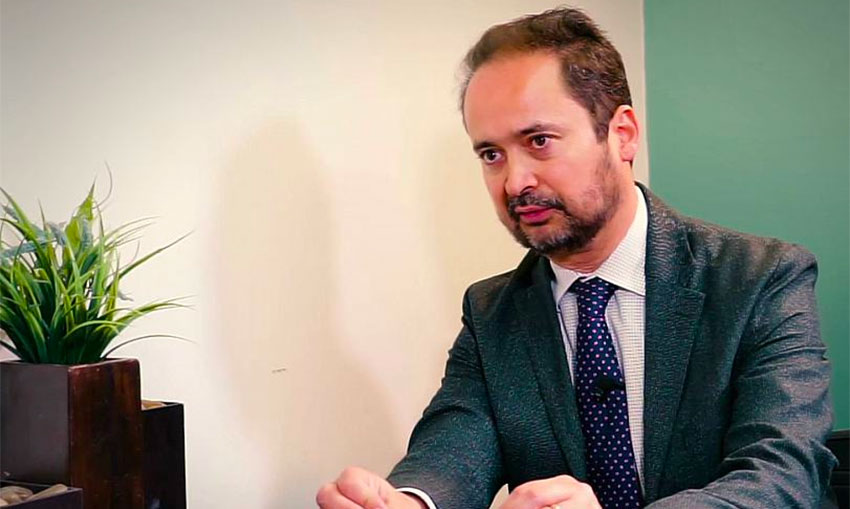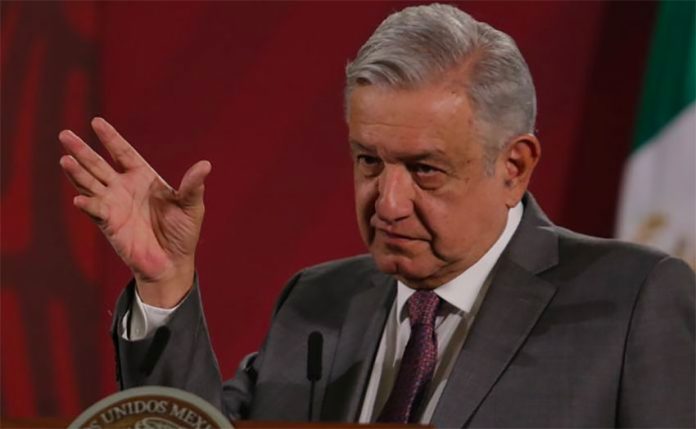The measures outlined by President López Obrador on Wednesday to confront the coronavirus-induced economic crisis have been given a cool reception by economists and other financial experts.
The president’s plan was described by various analysts as “completely insufficient,” contrary to what is recommended, “a great disappointment” and “nothing new” and one warned it will hinder rather than help growth.
López Obrador announced a range of spending cuts on Wednesday morning that he said would allow an extra US $25.4 billion to to be spent on social programs and key infrastructure projects. Among them: 25% salary cuts for high ranking officials and a 75% reduction in spending on general services and supplies.
The president continues to refuse to increase public debt to provide fiscal support for the Mexican economy even as it appears headed for a deep recession in 2020 as a result of the Covid-19 pandemic and the measures put in place to contain the spread of the virus.
Rodolfo de la Torre, an economist and director of the Mexico City-based think tank CEEY, said the austerity measures announced by the president go against what is recommended in crisis situations.
The government should increase spending rather than reduce it, he said, asserting that the López Obrador administration should take on debt to support businesses that are at risk of collapsing.
De la Torre recommended that the government borrow 3% to 4% of GDP to provide stimulus and contended that some of the spending on infrastructure should be redirected elsewhere.
Federico Rubli, an economist and business consultant, described the plan as “a great disappointment.”
“It’s not a coherent plan to reactivate the economy and confront this crisis. They’re presenting austerity measures at the least appropriate time. … They have to turn around and look at what is being done in other parts of the world, which is … injecting resources [into the economy] to support small and medium-sized businesses,” he said.
Rubli also said that it is “reprehensible” that the government is not postponing its three emblematic infrastructure projects, the Maya Train in the country’s southeast, the Santa Lucía airport north of Mexico City and the Dos Bocas oil refinery on the Tabasco coast.
“He [López Obrador] is insisting on maintaining the oil sector as the motor of the economy,” he added, referring to López Obrador’s decision not to cut investment for petroleum production by the state oil company. “It’s completely outdated to think that the oil sector will be the motor to get us out of this crisis.”

Carlos Ramírez of the consultancy firm Integralia said the cuts the government has made to spending since it took office are “laudable” and that nobody is against helping the nation’s most vulnerable.
However, he said that López Obrador is running the risk of bringing the public sector to a standstill by cutting government spending so deeply.
The general director of the Institute for Industrial Development and Economic Growth, a think tank, said that it is “difficult to think” that the government will be able to combat effectively “the worst global recession in 100 years” without increasing public spending.
José Luis de la Cruz also said that López Obrador is misguided in thinking that he will be able to protect Mexico’s poorest from the economic impact of the crisis through social program spending alone.
“The president believes that he’ll be able to protect the poorest with the same [welfare] payments that he budgeted. But while he’s not protecting the capacity of companies to generate jobs, there will clearly be no way to protect the most vulnerable,” he said.
López Obrador has said repeatedly that his administration is focused on assisting Mexico’s poorest rather than large companies that have been bailed out by past governments. But poverty-fighting nonprofit Oxfam México said this week that the government’s social programs don’t reach all of the country’s needy people.
“The pensions for the elderly, [student] scholarships and pensions for people with disabilities don’t cover all people in situations of poverty,” the NGO said on Twitter. Among those missing out are people who live day to day, subsisting on very low incomes, Oxfam said.
The government has committed to extending federal employment programs such as the tree-planing scheme known as Sembrando Vida (Sowing Life) while López Obrador said Wednesday that 3 million loans will be made available to poor and middle-class Mexicans to help them through the coronavirus-induced economic downturn.
But according to Oxfam the support “will not be insufficient” to see the nation’s poorest through the tough economic times that are predicted to persist for months.
López Obrador is more focused on protecting public finances than jobs, said Gabriela Siller, head of economic analysis at financial group Banco Base. She charged that the government needs to adopt “an expansive fiscal policy” aimed at avoiding widespread job losses.
Héctor Villarreal, general director of the Budget and Economics Research Center, a think tank, blamed the government more widely for the plan presented by the president.
López Obrador is surrounded by people who “know nothing” and the Finance Ministry’s response to the economic crisis has been “pathetic,” he said.
The president “might think that he’s generating big savings but the public sector was already very lean,” Villareal added.
“Now its muscle, tendons and bones have been removed. … Where there should be spending cuts and dismissals is at Pemex.”
Amin Vera, economic analysis director at asset management firm BW Capital, predicted that the measures will end up having a negative impact on growth rather than a positive one.
“That’s why banks such as BBVA are already suggesting scenarios with contractions greater than 10% [in 2020],” he said.
CI Banco analyst James Salazar said the plan “doesn’t contain anything new,” alluding to the fact that López Obrador announced most of the same measures at the start of the month.
He also said that López Obrador failed to provide details about how he plans to create 2 million new jobs by the end of the year.
The economic plan to combat the coronavirus crisis is “completely insufficient,” Salazar said. “More targeted support measures are needed considering that there are sectors that are very badly hit.”
Marco Oviedo, chief economist for Barclays in Latin America, and Alejandro Saldaña, chief economist at the financial company Ve Por Más, both said that the salary cuts for high-ranking officials could affect the operational capacity of the public service and lead to a brain drain of talented personnel.
“This diminishes the motivation … to work,” Ovideo said. “I think it’s unnecessary and doesn’t save a lot.”
Source: El Economista (sp), El Financiero (sp), Forbes México (sp)
